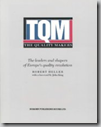I confess. I owned too many books on productivity - looking for a silver bullet to increased efficiency. I went through all my productivity books and threw out all those filled with platitudes and wibble wobble and ended up with 1 book. Getting Things Done. And now you can learn the secrets from Dave Allen's Getting Things Done by watching 2 Google Talks.
Getting Things Done by Dave Allen [
amazon.co.uk][
amazon.com]
Dave Allen's book describes a
system for increasing productivity by getting you to actually do stuff. And by doing stuff you free your mind to give you time to think about new stuff.
I watched 2 Google talks:
- Dave Allen's Google Tech Talk on Getting Things Done
- Merlin Mann's Inbox Zero
Merlin Mann based his talk on Dave Allen's work so I put Dave Allen's talk in the list first. But since I watched Merlin's talk first, I'll discuss that first.
Merlin discusses his system for keeping his inbox clean by having 5 actions that he does on his e-mail:
- Delete (Archive)
- Delegate (Tickler for Follow Up)
- Respond (keep the ball moving - if you don't have enough info to respond effectively - ask a question)
- Defer (Respond Later Folder - whittle down during the week)
- Do It (or capture an action for later)
During the talk Merlin mentions the following points that I noted down:
- Inbox is for mail you haven't read next
- Keep a separate list for tasks
- Figure the system out for yourself
Both Dave and Merlin make, and stress, the point about figuring out the system for yourself. Identify the tools and approach that works best for you. And you can only do that by implementing and experimenting with the system.
I use my email system to help me track my tasks - although I don't use my inbox - I create a folder called "Next Actions" and have a subfolder under that named <the action I want to do> and any emails relevant for that action I store in that folder. This gets the emails out of my inbox and I can archive them once I complete the action.
I don't rely on my subfolder system to 'remind' me when to do that next action so I create calendar entries which relate to the Next Actions to help me schedule them.
I have read the GTD book twice but I learned a few additional things, from the video, that didn't sink in when I read the book, and these relate to the order of doing the tasks in the GTD system.
Dave Allen's System has the notion of Control and Perspective. When planning I tend to look at the Perspective items first but Dave Allen recommends getting Control of the things currently going on first, and then dealing with perspective. When you want the video this will become clear.
The above point also relates to the different levels of view point that Dave Allen mentions:
- 50,000 - purpose, principles
- 40,000 vision
- 30,000 goals (12-18 months)
- 20,000 areas of focus/responsibility (maintenance)
- 10,000 projects (30 - 100)
- Runway - next actions
I, again, have a tendency to focus on my 'Vision' and 'Goals' but Dave recommends going bottom up.
Once you have watched the videos. Browse the Dave Allen site and check out the
43folders.com site.
 A highly relevant book to read in these cost cutting times. Andrew Wileman evidently having seen it and done it - and now presenting useful advice on the art of cost cutting.
A highly relevant book to read in these cost cutting times. Andrew Wileman evidently having seen it and done it - and now presenting useful advice on the art of cost cutting.









 Much of this book dishes out information that I already knew and I found myself rushing through it to find things I didn't. And eventually the book did dish out some things I didn't know. I also found that someone else had already implemented some product ideas I had planned to follow up on, so I saved myself some development and research time.
Much of this book dishes out information that I already knew and I found myself rushing through it to find things I didn't. And eventually the book did dish out some things I didn't know. I also found that someone else had already implemented some product ideas I had planned to follow up on, so I saved myself some development and research time.


